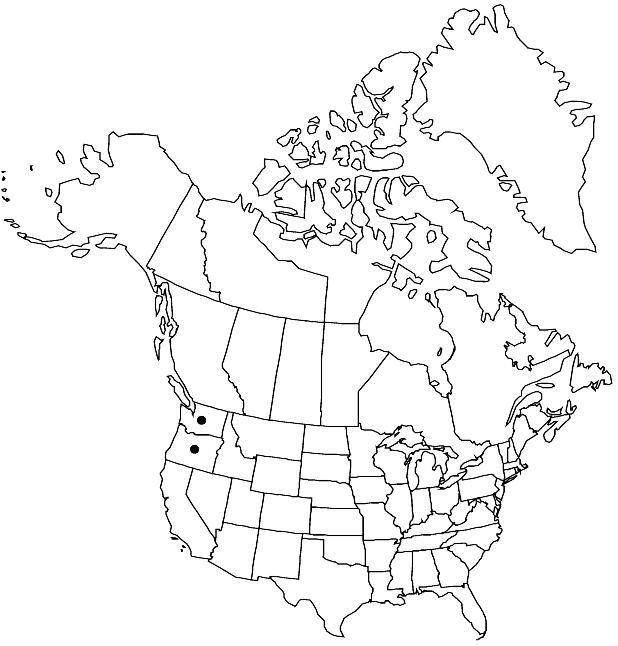Difference between revisions of "Erysimum occidentale"
in A. Gray et al., Syn. Fl. N. Amer. 1(1,1): 144. 1895.
FNA>Volume Importer |
FNA>Volume Importer |
(No difference)
| |
Revision as of 20:24, 24 September 2019
Biennials. Trichomes of leaves 2- or 3-rayed. Stems erect, often branched distally, 0.5–3(–6.5) dm. Basal leaves (often withered by fruiting); blade linear-oblanceolate, 2–11(–15) cm × (1.5–)2–6 mm, margins usually entire, rarely denticulate. Cauline leaves (distal) sessile; blade margins entire. Racemes (simple or branched), considerably elongated in fruit. Fruiting pedicels divaricate-ascending, slender, narrower than fruit, 4–11(–15) mm. Flowers: sepals linear-oblong, 8–13 mm, lateral pair saccate basally; petals bright or pale yellow, obovate to broadly so, 14–22(–25) × 3–7.5 mm, claw 11–16 mm, apex rounded; median filaments 10–14 mm; anthers linear, 3–4 mm. Fruits ascending, narrowly linear, straight, not torulose, 3–12 cm × (2–)2.4–3.7 mm, strongly latiseptate, not striped; valves with prominent midvein, pubescent outside, trichomes 2- and 3-rayed, glabrous inside; ovules 34–46 per ovary; style cylindrical, slender, (2–)2.5–5 mm, sparsely pubescent; stigma entire. Seeds ovoid, (2–)2.5–3.5 × 1.3–2.5 mm; wing continuous distally, (0.3–0.8 mm wide). 2n = 36.
Phenology: Flowering Apr–Jun.
Habitat: Sand deposits
Elevation: 50-700 m
Discussion
Erysimum occidentale is restricted to sand deposits along or near the Columbia River and its tributaries. It is distributed in Gilliam, Hood River, Morrow, Sherman, and Umatilla counties in Oregon, and in Franklin, Grant, Kittitas, Klickitat, Lincoln, Walla Walla, and Yakima counties in Washington.
Selected References
None.
